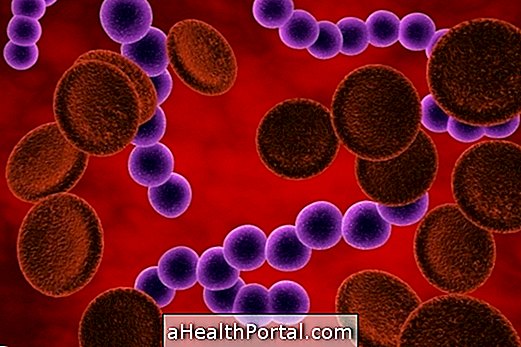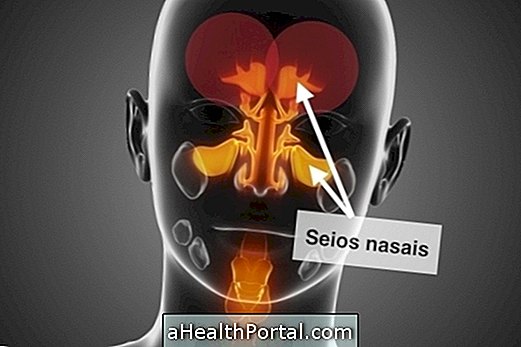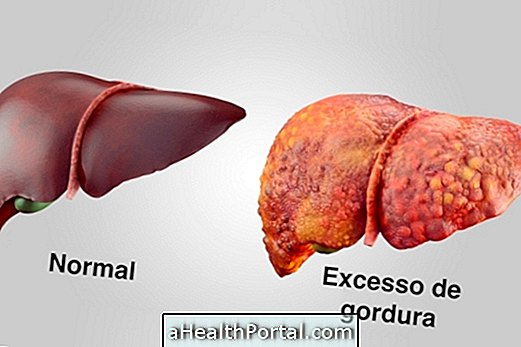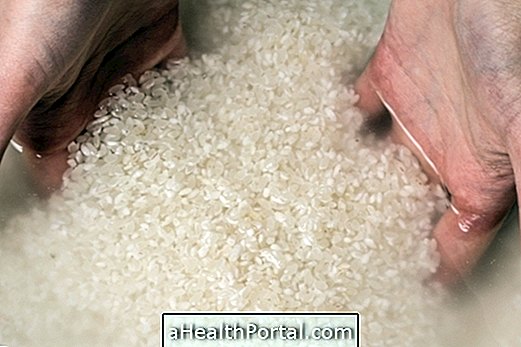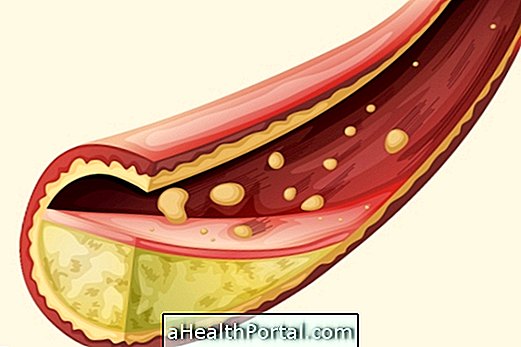Lack of appetite usually poses no health problem, not least because nutritional needs vary from person to person, as do your eating habits and lifestyle, which directly influence your appetite.
However, when lack of appetite is accompanied by other symptoms such as rapid weight loss, diarrhea and fever, for example, it is important to go to the doctor for tests to identify the cause of loss of appetite and thus, the best treatment can be initiated, avoiding also possible complications, such as malnutrition, for example. Know the consequences of malnutrition for health.

What can it be
The lack of appetite can have several causes, the main ones being:
1. Emotional or psychiatric problems
Depression and anxiety, for example, can decrease a person's appetite and may even result in weight loss. In addition to these psychological problems, anorexia can be considered one of the main causes of loss of appetite, because the person feels fat, has low self-esteem and is afraid to eat, which causes their appetite to decrease and loss of appetite. Weight. Learn more about anorexia.
What to do: In such cases, the best option is to get help from a psychologist or psychiatrist so that depression, anxiety or anorexia can be treated so that the person can feel more willing to eat, for example. In addition to the psychological counseling, it is important to have a nutritionist to follow a diet according to the general state of the person and that is able to stimulate the appetite.
2. Infections
Most infections, whether bacterial, viral or parasitic, have gastrointestinal symptoms, one of which is lack of appetite. Know some symptoms of parasite infection.
What to do: When there are symptoms related to infectious diseases, it is important to go to the infectologist or general practitioner for tests to identify the cause of the infection so that the most appropriate treatment is initiated.
3. Chronic diseases
Chronic diseases such as diabetes, heart failure, chronic obstructive pulmonary disease, neurological disorders and cancer, for example, may present as a symptom of loss of appetite. In the case of cancer, for example, in addition to lack of appetite, there is rapid weight loss and no apparent cause and changes in urine, for example. Know the main symptoms of cancer.
What to do: It is important to seek guidance from the general practitioner if any chronic illness is suspected. Thus, it is possible to identify the cause of loss of appetite and initiate appropriate treatment, avoiding complications and re-establishing the will to eat.
4. Use of medicines
Some medications have a side effect of decreasing appetite, which is not very serious, unless other symptoms appear that may interfere with the person's quality of life.
What to do: If the loss of appetite related to the use of medicines interferes with the daily activities of the person, it is important that it is communicated to the doctor so that he can check the possibility of substitution of the drug with another that does not have that effect.
5. Use of licit and illicit drugs
Consumption of alcoholic beverages, cigarettes and other drugs can also interfere with appetite, as well as causing various other health complications.
What to do: The best solution for these cases is to avoid the consumption of alcoholic beverages and cigarettes, for example, because besides regulating the appetite, it avoids diseases, such as hepatic steatosis and lung cancer, for example. In addition, it is important to maintain healthy habits by practicing regular physical activities and maintaining a balanced diet.
When to go to the doctor
It is important to consult a general practitioner when, in addition to lack of appetite, other symptoms appear, especially rapid weight loss, as it can lead to severe malnutrition. In addition to weight loss, it is important to note if there was an increase in heart rate, extreme tiredness, fever, irritability and hormonal changes, for example.
The doctor usually indicates that some tests are done to identify the cause of the lack of appetite and to start the treatment. One way to stimulate appetite is by exercising and eating small amounts of food every two hours.
In addition, it is extremely important that the person seek guidance from a nutritionist so that the nutrients necessary for the proper functioning of the organism are provided. Depending on the level of nutrient loss, the nutritionist may indicate the use of food supplements and the consumption of foods rich in B-complex vitamins, such as beans, nuts and green vegetables, for example. See where to find each type of vitamin B.




